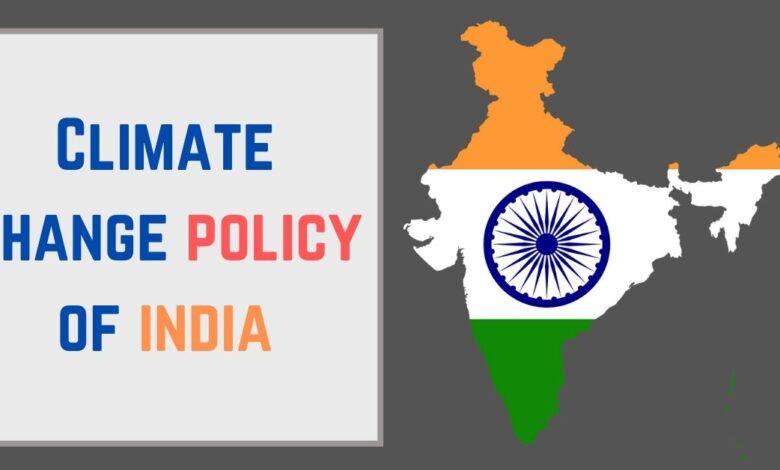India is Progressing to meet its Climate Action Goals

Read on to know more about India’s national policies have undergone significant changes to align with the global call for climate commitments.
India’s stance on the global climate change conversation is distinctive, with a complex and multifaceted climate debate underway in the country. Notably, India has set ambitious renewable energy goals to be integrated into the economy by the next decade. The urgency of India’s climate policy is evident through increased engagement with stakeholders from various sectors, including parliament, media, businesses, civil society, and philanthropy. These pro-climate policies and initiatives have resulted in India being ranked at the top of the G20 nations on the Climate Change Performance Index (CCPI) in 2023.
In August 2022, India revised its NDC targets to align with the “Net Zero” objective by 2070, which was announced during COP-26 in Glasgow. The updated NDCs consist of three specific targets and five general objectives. The three specific goals are as follows:
Decrease the emissions intensity of its GDP by 45% by 2030, compared to the 2005 level.
Achieve approximately 50% of the total installed capacity of electricity from non-fossil fuel-based energy resources by 2030.
Establish an additional carbon sink of 2.5 to 3 billion tonnes of CO2 equivalent by increasing forest and tree cover by 2030.
Progress in Renewable Energy Sector
Over the past decade, India has made significant progress in increasing the proportion of renewable energy in the country. In 2022, the share of renewable power installed capacity surpassed the 40% milestone, which was originally targeted for achievement by 2030 in the initial NDC communication. To encourage the adoption of renewable energy, the Indian government has implemented various policy tools, such as regulatory measures aimed at reducing taxes, enhancing efficiency, and tailoring research and development programs to attract international investments.
Amendments to Energy Conservation Act
The revised NDCs of India are reinforced by amendments made to the Energy Conservation Act and the Electricity Act. In 2022, the Energy Conservation Act of 2001 was modified to enable the accelerated adoption of non-fossil fuel energy sources by heavy industries, transportation sectors, and large commercial and residential structures. Additionally, the proposed amendments in the Electricity Bill aim to promote competition and enhance consumer choice by increasing the participation of private power companies in the distribution of electricity to end-users, paving the way for the privatization of electricity distribution in the country.
Promote Green Hydrogen
In 2021, India launched the National Hydrogen Mission, which allows for interlinkages with policies that promote renewable energy. For instance, renewable energy used for hydrogen production is considered to be compliant with renewable purchase obligations. The recently announced budget for 2023 includes a promised allocation of INR 19,700 crore to promote the mainstream adoption of green hydrogen as a solution to decarbonize hard-to-abate sectors.
Other Significant Steps

In addition, phase II of the Faster Adoption and Manufacturing of Electric Vehicles in India (FAME-Scheme) provides financial support in the form of purchase incentives, interest subventions, tax benefits, etc., to reduce the capital costs of buying an EV. The government is also constructing EV charging stations and aiming for 20% ethanol blending by 2025 to promote sustainable transportation.
The Ministry of Environment, Forests, and Climate Change (MoEFCC) has directed the revision of the “State Action Plans on Climate Change (SAPCC),” which will outline key mitigation and adaptation strategies for states and union territories. This document will be crucial for implementing vulnerability-specific adaptation interventions and developing India’s long-term adaptation plan. The Prime Minister of India launched “Mission LiFE,” which emphasizes individual behavior changes to alter consumption patterns and leverage local cultures. This is critical to enhancing India’s adaptive capacity and resilience.
The Bottom Line
India has substantially realigned its national policies in line with the global push for climate commitments, indicating that it will likely have a more influential stance in upcoming climate change negotiations.
The Disposal Company helps brands to adopt the plastic-neutral scheme to mitigate the effects of climate change. Check here to contact us.




